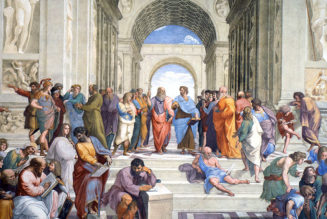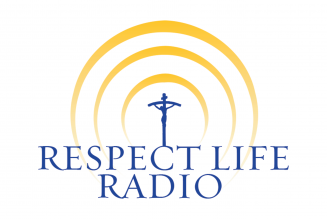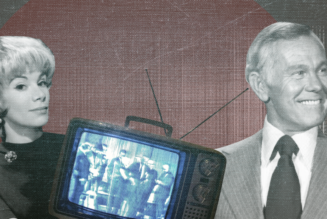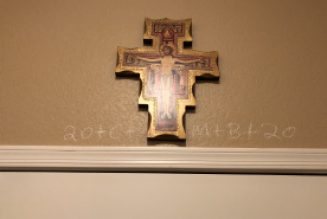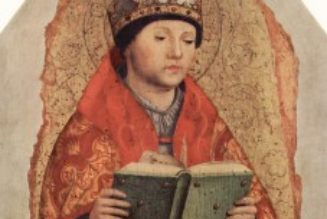ROME – Back in 2007, the prestigious English news magazine The Economist carried an article on Vatican diplomacy, which concluded with a bit of unsolicited advice: The Vatican, the journal opined, “could renounce its special diplomatic status and call itself what it is – the biggest non-governmental organization in the world.”
The Vatican was not amused.
The then-Secretary for Relations with States, French Archbishop Dominique Mamberti, responded with a truculent one-sentence riposte: “This is certainly not an acceptable invitation!” He added that the suggestion reflected a worryingly “reductionist vision” of the Holy See’s role in international affairs.
It’s roughly the same response the Vatican has given over the years when other calls have popped up to drop its sovereign status, such as the cheekily named “See Change” campaign launched by Catholics for Choice, or when a government, for one reason or another, floats the idea of closing its embassy to the Vatican or perhaps combining it with their embassy to Italy.
One can understand the logic for the argument that Vatican sovereignty is an historical anachronism, a vestigial leftover from the era of the Papal States in which the pontiff ruled as a secular monarch over a swath of central Italy.
Today, critics object that the pretense to sovereignty also is used by the Vatican to insulate itself from accountability before civil law. Efforts to sue the Vatican in American courts over the clerical sexual abuse crisis, for instance, so far have all been dismissed on the grounds of sovereign immunity, before ever adjudicating the merits of the claims.
Yet, almost by accident, we’ve recently had a poignant reminder of why popes over the centuries have scratched and clawed to defend Vatican sovereignty, in the form of a June 29 encounter between Italian Cardinal Matteo Zuppi, Pope Francis’s special envoy for peace in Ukraine, and Patriarch Kirill of Moscow, head of the Russian Orthodox Church.
The meeting came as the highlight of a two-day June 28-29 visit by Zuppi to Moscow, on the heels of a similar outing to Kyiv earlier in June. While the mission to date hasn’t produced any diplomatic breakthrough, it did demonstrate the Vatican’s resolve to keep lines of communication open.
As it happened, Zuppi sat down with Kirill and other leading Russian Orthodox prelates just a few days after Kirill and his confreres had stood foursquare behind Vladimir Putin during the brief insurrection of Yevgeny Prigozhin and his Wagner Group mercenaries.
“Any attempt to sow discord within the country is the greatest crime that has no justification,” Kirill told the Russian people. “I support the efforts of the Head of the Russian State aimed at preventing unrest in our country,” he said, obviously meaning Putin.
In the wake of the compact pro-Kremlin Orthodox line, respected Italian sociologist of religion Massimo Introvigne published an essay in which he argued that while it may be exaggerated to say that Kirill “saved Putin” – such a claim risks overstating the patriarch’s influence, given that estimates of church attendance in Russia even for Easter and Christmas hover at around two or three percent – but Kirill and his fellow prelates nevertheless made clear that they see Putin as their most important “ally and guarantee.”
Let’s set the scene for the June 29 encounter, which, coincidentally, fell on the storied Roman feast of Sts. Peter and Paul.
Zuppi arrived as the personal emissary of a pope who, from the beginning, has pursued his own path on the Ukraine conflict, beholden to no particular state or international alliance. Francis clearly isn’t in the US-UK-NATO camp of arming Ukraine to the teeth, nor is he in the Putin echo chamber of referring to the war as a “special military operation” and offering “de-Nazification” as a justification for it.
Substantively, Francis’s effort to remain neutral arguably is closer to, say, Brazil, or South Africa, or India and China, than any of the contending parties, with the difference that Francis has no economic or military interests to either gain or lose.
In other words, Zuppi could reasonably present himself in Moscow as the representative of an independent global voice of conscience, with which one is free to agree or not, but which can’t simply be dismissed as the vassal of some other entity.
The same cannot be said of his conversation partners.
From the very beginning, Russian Orthodoxy has always seen itself as the spiritual support system of Russia’s ruling class, especially in the era of the Tsars. In effect, the Russian Orthodox Church long has been seen as the ecclesiastical arm of the Kremlin, defending Russian interests in the religious sphere just as other entities of the state defend its economic, strategic and security interests.
The contrast between the Vatican as an independent, sovereign entity, and the Russian Orthodox as a spiritual expression of Russia’s national interests, came to a head more than twenty years ago, when Pope John Paul II decided to transform four apostolic administrations in Russia into dioceses.
At the time, the Patriarchate of Moscow objected that its traditional homeland – including, notably, not just Russia but also Ukraine – was its “canonical territory,” and that any expansion of Catholicism amounted to illegitimate “proselytism.”
German Cardinal Walter Kasper, who at the time was the Vatican’s lead official for ecumenism, shot back that identifying the church with any particular culture or ethnicity ultimately leads to an “ecclesiastical heresy,” because the Christian faith, by its nature, is meant to be universal.
It was a similar charge to the one leveled twenty years later by Swiss Cardinal Kurt Koch, Kasper’s successor, who said at the outbreak of the war in Ukraine that Kirill’s strident defense of the Russian invasion amounted to “heresy.”
The heart of the problem, Koch said in 2022, “lies in the relationship between church and state, which in Orthodoxy is seen and shaped in the sense of a symphony between the two realities.”
In February, two Swiss newspapers, citing declassified state archives, reported that Swiss police in the 1970s had concluded that then-Archimandrite Kirill, who represented the Russian Orthodox Church to the World Council of Churches from 1971 to 1974, was an informant for the KGB under the code name “Mikhailov.” Though the Moscow Patriarchate has not responded to the reports, experts say it actually would have been odd for a Russian cleric living abroad at the time not to have had some contact with the KGB, given the symbiotic relationship between church and state.
To sum up: Granted, the Vatican’s sovereignty may be a reminder of its checkered past of power and privilege, and even today may act as a force field shielding it from absorbing the full consequences of its failures.
On the other hand, if you want an illustration of what Catholicism might look like without that guarantee of sovereignty, look no further than the Russian Orthodox – heirs to a great Christian tradition, certainly, but whose church is often seen, and not entirely without reason, as an extension of politics by other means.
